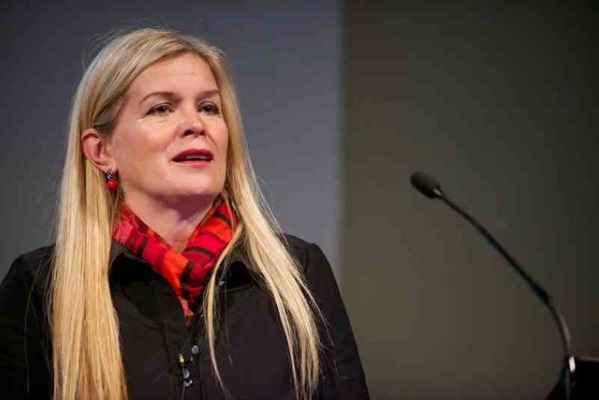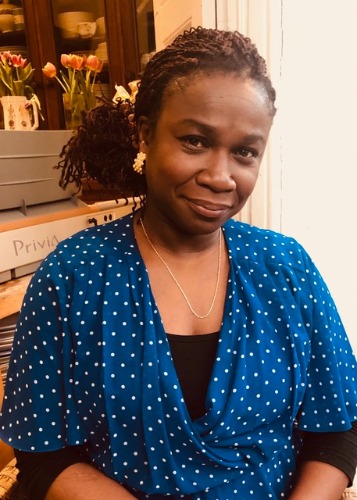On 19 May, the second in the 'A Nudge and a Push' webinar series took place, with a great panel discussing ethical issues in retail and consumerism and modifying behavioural patterns for ethical consumption.
In today's data-driven world, consumers are active parts of the supply chain: prosumers. At the same time though, they are treated as passive consumers, whose behavioural patterns are observed (surveillance capitalism) with a view to market products and to maximise profit (nudges – behavioural economics).
Technology can be proven to be a valuable tool towards the direction of ethical consumption enabling social change. It could further provide an accountability mechanism (ethically and legally) for everyone involved in the supply chain.
- To what extent can we embed social and ethical values beyond the law?
- What are the benchmarks for behaviour change, and when/how do individual changes become collective social change?
- What small changes might have bigger, systemic effects?
- How can technology be used to empower individuals without conferring individual blame for systemic injustice
Panel:

Chair: Dr Olga Martin-Ortega, Professor of International Law, University of Greenwich
Olga is Professor of International Law at the School of Law, University of Greenwich, where she leads the Business Human Rights and the Environment Research Group (BHRE). She has been researching business and human rights for two decades. Olga is a member of the Board of Trustees of Electronics Watch and the Corporate Justice Coalition UK and a member of the Board of Directors of the London Universities Purchasing Consortium. She works with the Modern Slavery Prevention Unit of the UK Home Office, other governments and international organisations, including the ILO and the OSCE training public sector buyers, producing professional guidance and supporting them in their development of human rights due diligence in their supply chain and modern slavery reporting. She has advised the EU Parliament on mandatory human rights due diligence regulation. She works as part of the Un/Archived Textiles team.

Co-Chair: Eva Pascoe, Director of Ecommerce, The Retail Practice / Chair of Cybersalon
Ecommerce Director at TheRetailPractice.com, Eva has been leading on the fashion transition to online world since 2000, when she set up Topshop.com. She is currently Interim CTO for a sustainable lingerie brand Bluebella.com. She also advises on digital marketing/IT to many growing sustainable fashion brands in UK and Holland, working to develop post-lockdown comeback in a more Earth-friendly way. Eva has also co-funded world’s first Internet Café ‘Cyberia’ back in 90s. Since then, she has led the campaign for GDPR for improved online privacy, arguing for the balance between convenience and personal data protection. To focus this campaign, in 1997 she has co-founded Cybersalon.org, hackers and researchers group that advises on Digital Rights.
Via her consulting company TheRetailPractice.com Eva is leading on sustainability transition for legacy brands, introducing robotics into supply chain. As industry advisor to Middlesex Uni BA in Digital Media, Eva is also involved in research on VR in fit in fashion and virtual fashion in gaming. In 1998 she had a cameo appearance in the first VR Nightclub (Philips), for which she designed her own VR jumpsuit.

Dr Argyro Karanasiou, Senior Lecturer in Law, University of Greenwich
Dr Argyro Karanasiou is the Director of LETS Lab (Law, Emerging Tech & Science) and a leading expert in Information Technology Law. Her work has been at the forefront of fostering ‘law and emerging technologies’ as a sub-field of legal and transdisciplinary scholarship and has earned her visiting research affiliations with Yale Law School (ISP Alumna), NYU Law (ILI Alumna), Harvard Law (affiliate Faculty staff CopyX), Complutense Madrid (ITC). She is actively involved in several technology policy and related initiatives and has contributed invited expert insights on a number of occasions, most notably for the Equality and Human Rights Commission (AI in recruitment – 2020), the Chatham House (Internet Governance – 2018), the US Air Force (AI & Augmented Cognition – 2018), and the Royal Society (Machine Learning – 2016), the Electronic Frontiers Foundation (Free Trade Agreements and Human Rights – 2016), the Council of Europe (regional South Eastern Europe expert in Media - 2014).

Ingrid Karikari, Digital Consultant and Strategist

Michaela Larosse, Head of Content & Strategy, The Fabricant
Michaela Larosse is Head of Content & Strategy for The Fabricant, the world’s first digital fashion house. The Fabricant’s garments are always digital, never physical, and for use purely in the digital realm. The company is focused on establishing a new non-physical industry, which creates a more innovative and sustainable fashion future - their pieces waste nothing but data and exploit nothing but imagination. With a background as both a features writer and conceptual creative for the advertising industry, within her role at The Fabricant Michaela shapes its brand philosophy, conceptual storytelling and creative strategy.
DATUM Public Talk Series is curated by Ghislaine Boddington (body>data>space/University of Greenwich) as part of DATUM R&D (Innovate UK), with the support of University of Greenwich, and with inputs from body>data>space, ZU-UK and research groups CLEI, BHRE and LETS Lab.
DATUM R&D is created and produced by ZU-UK (lead partner), University of Greenwich and body>data>space, with support from Innovate UK. This project is partnered with Strategic Research Groups at University of Greenwich - CLEI – Co-creating Liveness in Embodied Immersion, BHRE – Business, Human Rights and Environment and LETS – Law, Emerging Technologies & Science.

